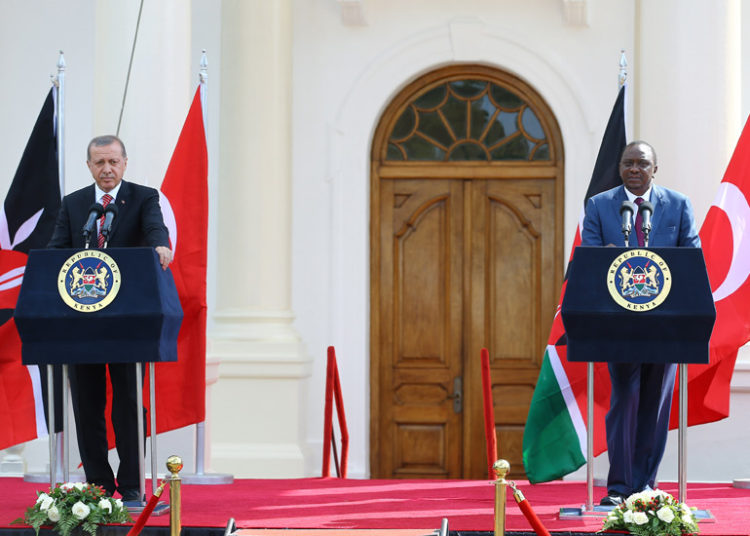Nordic Monitor
The Turkish government is planning to become involved in oil and gas exploration in Kenya, by establishing a mechanism that will allow both private and state-owned companies to explore energy opportunities in the strategically located East African country.
Turkey also signed agreements with Ethiopia and Somalia to strengthen energy cooperation with regional countries and expand its energy ties in the Horn of Africa.
The approval process for the memorandum of understanding (MoU) between Turkey and Kenya on comprehensive energy and hydrocarbon cooperation was accelerated by President Recep Tayyip Erdoğan’s ruling Justice and Development Party (AKP), and the deal was approved by the Foreign Affairs Committee of the Turkish parliament in January 2020.
In December 2019 Turkey’s trade minister, Ruhsar Pekcan, stated that 2020 would be “Africa Year” for Turkey, adding, “We should play a proactive role in our target markets and in countries that have potential.” Recent developments and parliamentary actions reveal that Turkey has already established the legal basis to become a key energy actor in East Africa.
According to Article 1 of the MoU, obtained by Nordic Monitor, the mechanism will focus on promoting “cooperation between the Parties in the fields of energy and hydrocarbon on the basis of a mutual understanding, taking into account the Parties’ expertise and the development needs.”
The agreement states in Article 3 that Turkey and Kenya will conduct joint projects in the development and promotion of oil and gas exploration and exploitation; storage, marketing, transport and distribution of oil derivatives; construction and maintenance of oil and gas infrastructure and the application of gas technology; and construction, management and transmission of electricity.
The 12-article agreement was submitted to parliament for ratification on January 25, 2019 by President Erdoğan.
The letter submitted to parliament seeking approval of the agreement:
The agreement in Article 5 underlines that the parties should encourage public and private companies to invest in the mining and hydrocarbon sectors in both countries.
According to the MoU, the countries will develop renewable energy projects on “research and development, poverty alleviation and sustainable development in the field of electricity, [and] energy efficiency.”
The deal also covers technical cooperation in hydrocarbon and energy, the exchange of visits by policymakers and experts, the promotion of specialized training courses in the hydrocarbon, hydroelectric power plant and thermal power plant industries, and participation in workshops, conferences and exhibitions aimed at attracting investment in the fields of energy and hydrocarbons.
In accordance with Article 4, the parties will establish a “Energy and Hydrocarbon Working Group” to jointly develop cooperation plans as well as for the implementation and analysis of the work to be performed. The agenda, time and place of the meetings shall be agreed by the parties, Article 6 states.
Furthermore, the deal sets forth conditions on the handling of classified information produced under the agreement, specifying how it will be transmitted and published. Turkey and Kenya will ensure protection of the rights for intellectual property transferred or created under the MoU.
The energy and hydrocarbon cooperation agreement is posted below:
The agreement was signed on April 8, 2014 in Ankara by then-Turkish Energy and Natural Resources Minister Taner Yıldız and Kenyan Foreign Affairs and International Trade Minister Amina C. Mohammed during an official visit by President Uhuru Kenyatta to Turkey.
The terms of the agreement will be executed by the Ministry of Energy and Natural Resources on the Turkish side and the Ministry of Energy and Petroleum for Kenya. The deal is valid for five years with automatic renewal for successive periods of five years. According to the agreement, either party may notify the other of the intent to terminate at least six months in advance.












